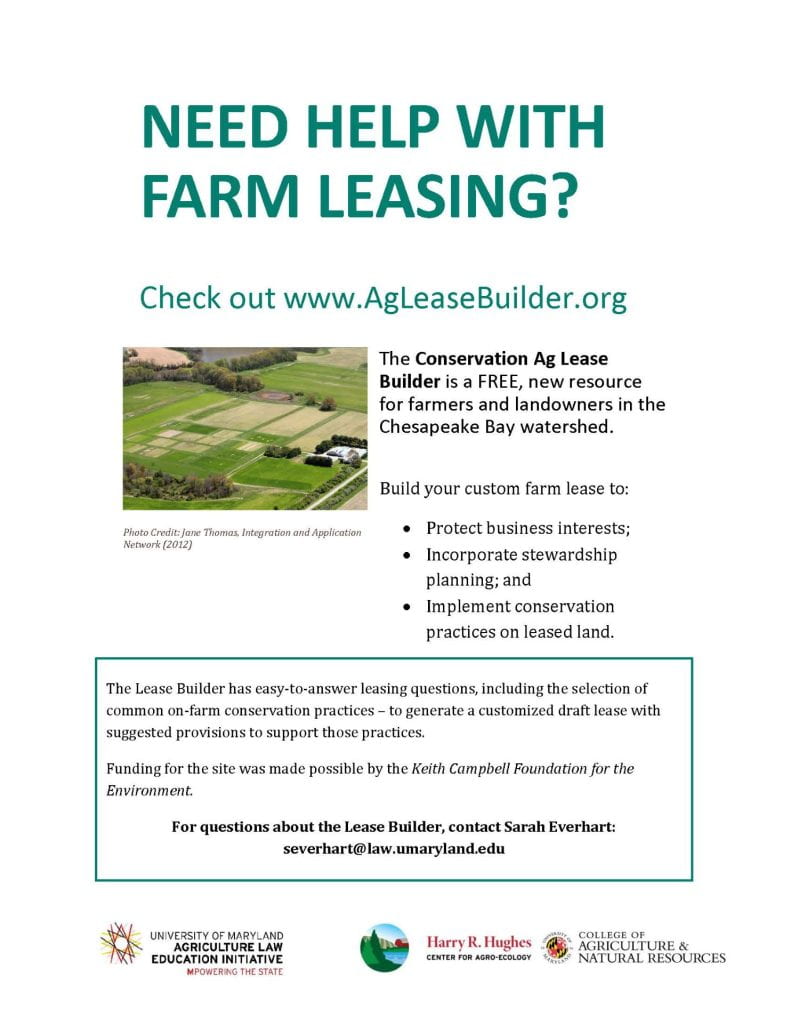The University of Maryland’s Agriculture Law Education Initiative and the Harry R. Hughes Center for Agro-Ecology, Inc. recently launched the Agricultural Conservation Lease Builder to aid farmers and farm landowners, throughout the Chesapeake Bay Watershed, create agricultural leases. The Lease Builder is an online tool that guides users through questions about the farm and conservation practices to generate a customized draft lease with suggested provisions to support those practices. The tool is intended to support farmers and farm landowners to protect business interests, encourage environmental stewardship, and support on-farm conservation practices.
The Lease Builder asks for information such as landowner and tenant information, property information, the length of the lease, activities the farmer may practice, and the farm’s conservation plan. The tool is free to use, and the entire process should take users less than an hour to complete. After building a draft lease, parties are strongly encouraged to seek individual legal advice prior to execution.
According to Sarah Everhart, Senior Legal Specialist, Agriculture Law Education Initiative, “our hope is that new tool will help both farmers and farm landowners put their handshake agreement into a simple lease document. By referencing specific on-farm conservation practices in the lease, leasing parties can set clear expectations about stewardship and reduce the potential for legal conflict.”
In addition to the Lease Builder tool, the site also valuable resources related to on-farm conservation, including information about common conservation practices, cost-share programs, and conservation planning. The Agricultural Conservation Lease Builder was funded by the Keith Campbell Foundation for the Environment. The tool can be accessed at agleasebuilder.org. Anyone with questions about the Agricultural Conservation Lease Builder may contact Sarah Everhart at severhart@law.umaryland.edu.
